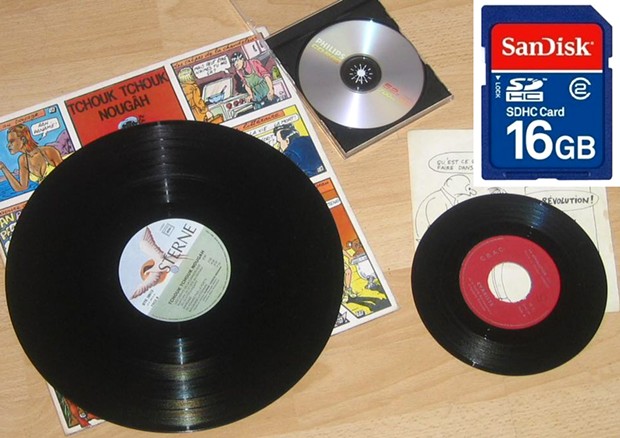[
{
"name": "Top Stories Video Pair",
"insertPoint": "7",
"component": "17087298",
"parentWrapperClass": "fdn-ads-inline-content-block",
"requiredCountToDisplay": "1"
}
]
Feed me -- more data, that is. My insatiable brain hungers to see and understand more. Minutes after getting out of bed in the morning, I'm online, checking my computer for emails, responses to my column and fresh blog posts; guiltily reading favorite comics (my love affair with Opus is undying); and printing out the New York Times crossword. Headlines, weather forecasts, tide curves -- I'm a kayaker -- and movie reviews swim in front of me, and before I quite register the passage of time, an hour has cruised by. Life is now 60 minutes shorter than when I sat down at my desk, and what's to show for it?
I never used to be like this. I'd read books from start to end, catch the op-eds in the morning paper (to find fault with them, naturally), digest Scientific American cover to cover. Something's happened to my brain in the last 20 years. Quoting from Nicholas Carr's latest book, The Shallows: What the Internet is Doing to Our Brains, my old mind has been "pushed aside by a new kind of mind that wants and needs to take in and dole out information in short, disjointed, overlapping bursts -- the faster, the better." (The irony is that I downloaded this provocative book, which questions the depth of our understanding when we read digitally, to my 1,500-book capacity Kindle.)
Carr starts by paying tribute to Marshall ("the medium is the message") McLuhan, who predicted the World Wide Web nearly half a century ago. "The electric technology is within the gates," McLuhan wrote in 1964, "and we are numb, deaf, blind and mute about its encounter with the Gutenberg technology ... ." Well, Gutenberg's movable-type technology (anticipated 400 years earlier by Bi Sheng in China) has had a pretty good run. Perhaps it's time for a change. But of course, what I or any of us think is irrelevant. The genie's out of the bottle: We're in a world of 65 million tweets a day and 600 million (9 percent of the global population!) Facebookers, a world where about as many ebooks as tree-based products are being sold on Amazon. My own analog youth of printed books, 78 rpm shellac records, fountain-pen cursive writing, rabbit-ears TV and wristwatches with hands has been swept aside by the digital flood.
The fact that it's all happened so fast tells us that the old picture of our brains being "hardwired" (using the commonplace computer analogy) is plain wrong. For humans to have embraced the digital world so rapidly and seamlessly, our brains must be far more plastic -- more soft- than hardwired -- than most neurologists thought possible even 20 years ago.
As with any change, there are pros and cons. TBH, I've lost the ability to soak up a good book for hours on end, but OTOH I can research articles, check facts and compare theories in seconds at my desk or in an internet café, rather than spending hours in a library. My iPad is my faithful companion and Wikipedia my loyal research assistant. And this brain of mine -- this newly-formatted, soft-wired, novelty seeking, distraction-loving, short-attention-span brain -- still somehow manages to stay au courant. Even if I'm not on Facebook and couldn't tweet to save my life.
CUL!
For Barry Evans ([email protected]), this is the best of times, despite and because of the digital revolution.
Comments (6)
Showing 1-6 of 6
more from the author
-
A Brief History of Dildos
- Apr 11, 2024
-
Eclipse!
- Mar 28, 2024
-
The Little Drone that Could
- Mar 14, 2024
- More »
Latest in Field Notes
Readers also liked…
-
Trouble on the Line: The Reality Part 2
- Nov 3, 2022

































